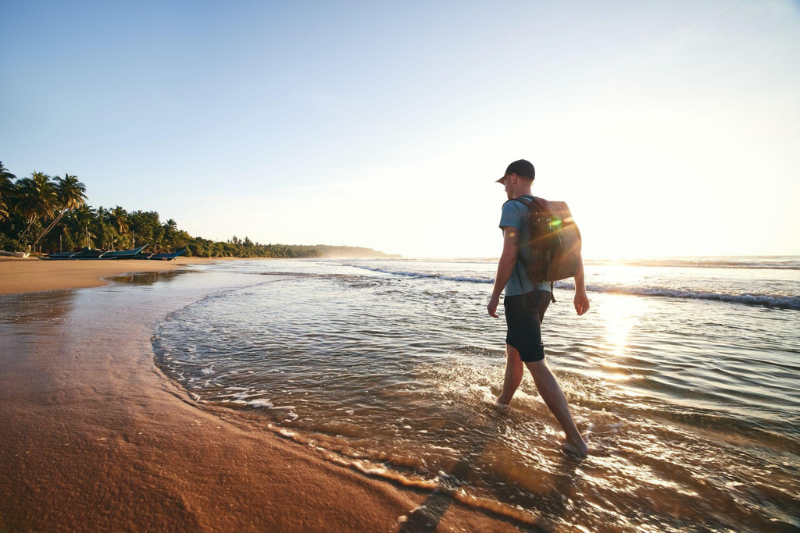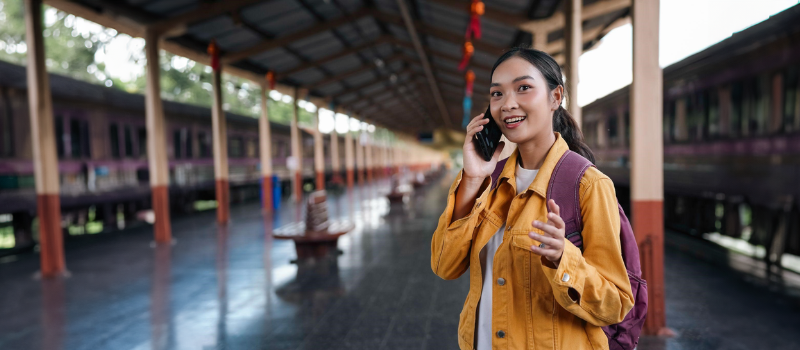There’s something undeniably magical about setting off on a solo adventure. It’s a chance to explore, discover new places, and experience the freedom of doing it all on your own. But with that freedom comes the responsibility to be prepared.
As you set out on your journey, you know that travel can be unpredictable. Unexpected challenges can pop up when you least expect them. That’s why it’s important to have a checklist of key emergency contact numbers before you head out. With the right numbers at your fingertips, you’ll feel more confident knowing that help is just a phone call away, no matter how far from home you are.
The Contact Numbers You Need to Have on Your Phone as a Solo Traveller
When you’re traveling solo, you’re your own lifeline. Picture this: You’ve just landed at your destination, filled with excitement for the adventures ahead. But as you step out of the airport, ready to explore, you realize your wallet—and all your important documents—are missing. What now? The first step is staying calm, but you’ll also need the right contact numbers to help you navigate this situation.
Having the right contact numbers saved and easily accessible can make all the difference when you find yourself in an unfamiliar situation. Here’s a list of vital contacts that every solo traveller should keep handy:
1. Local Emergency Services
Before you leave, take a moment to research the local emergency contact numbers for your destination, such as the police, ambulance, and fire services. Make sure to save these numbers in your phone and label them clearly for quick access when you need them most. It might not be something you want to think about, but being prepared could save you time—and even your life—in an emergency.
2. Your Home Country’s Embassy/Consulate
If you ever find yourself in a tough spot while abroad—whether it’s a lost passport, legal trouble, or something more serious—your embassy or consulate will be your best point of contact. Before you travel, figure out where the nearest embassy or consulate is and save their number. It’s also a good idea to register your trip with them; this can help them assist you faster if an emergency arises. That peace of mind is priceless when you’re far from home.
3. Travel Insurance Provider
Travel insurance is more than just a safety net—it’s your peace of mind while you’re on the road. Whether it’s for medical emergencies, lost baggage, or cancelled flights, having the contact number for your insurance provider is essential. Keep your policy number handy and easily accessible in case you need to report an incident or ask for assistance. Providers like HL Assurance offer a 24/7 emergency hotline, so you’ll have support around the clock, no matter where you are.
4. Trusted Family/Friends at Home
It’s a good idea to share your travel itinerary with someone you trust before you set off. Let them know where you’ll be and when, and check in regularly to keep them updated. Having their contact information saved in your phone is important too, just in case you need to reach out for help or simply want to share an exciting moment. They’ll be your connection back home when you’re far away.
5. Local Accommodation/Host
Whether you’re staying in a hotel, hostel, or Airbnb, always keep the contact number of your accommodation handy. If something goes wrong, they can provide you with local assistance or offer support when you need it most. In many cases, they might have insider knowledge or resources that can help you navigate any challenges you face during your trip.
6. Activity and Location-Specific Emergency Contacts (If Applicable)
If you’re planning to do something more adventurous, like hiking, scuba diving, or exploring remote areas, make sure you have the emergency contact number specific to those activities. For example, if you’re going out to sea, get the contact details for the coast guard or the local emergency services in that area. If you’re venturing into a national park or remote hiking trails, know how to reach the park rangers. These specialised contacts can be crucial for getting help in specific situations.
Tips for Keeping Contact Numbers Safe and Accessible

While it’s good to have these contact numbers on hand in your travel checklist, make sure you have multiple ways to access them in an emergency. Be sure to store them digitally on your phone, as well as jot them down in a waterproof notebook. That way, even if your phone dies or gets lost, you’ll still have access to the numbers you need in an emergency.
Before you head out on your next solo trip, make sure you are covered with travel insurance. HLAS Travel Insurance provides tailored policies for solo travellers, offering 24/7 assistance and peace of mind with easily customisable plans. Secure your next adventure with HLAS and travel with confidence.







